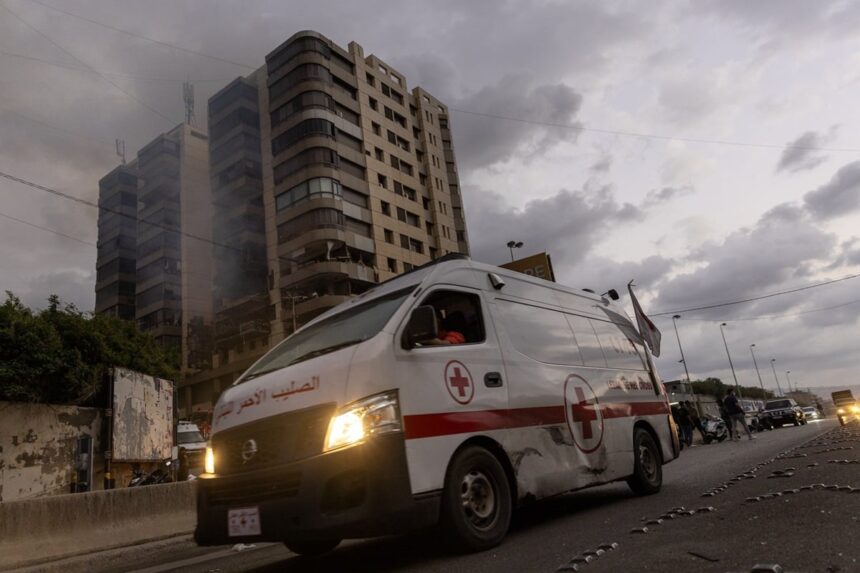“`html
Critical Situation of Healthcare in Lebanon Amid Ongoing Conflict
Following the surge in violence between Israel and Lebanon on September 17, 2024, the World Health Organization (WHO) has confirmed 23 assaults on healthcare facilities in Lebanon. These attacks have resulted in the tragic loss of 72 lives and left 43 individuals injured, including both healthcare workers and patients. Of these incidents, 15 directly affected health facilities while another 13 targeted health transport services.
The healthcare system in Lebanon is currently facing immense pressure as it attempts to provide essential medical services amidst an unprecedented wave of casualties. With a workforce that is both understaffed and overworked, hospitals are struggling to deliver continuous care to those who require assistance. Supplies are running low, and medical personnel are experiencing severe fatigue.
Closure of Health Facilities Due to Escalating Violence
The intensifying conflict has led to increased bombardments and insecurity, forcing many health facilities—especially those located in southern regions—to shut down operations. Out of a total of 207 primary healthcare centers affected by the conflict, approximately half (100) are now non-operational. Several hospitals have either closed or evacuated due to structural damage or their proximity to heavily bombarded areas; currently, five hospitals have been fully evacuated while another five have partially evacuated critical patients such as those undergoing cancer treatment or dialysis.
Dialysis centers are now compelled to extend their operational hours by adding three extra shifts daily just to accommodate transferred patients from overwhelmed hospitals that lack sufficient resources for essential blood testing supplies and staff.
Urgent Call for Ceasefire
“The situation unfolding in Lebanon is dire,” stated Dr. Hanan Balkhy, WHO Regional Director for the Eastern Mediterranean. “Attacks on healthcare not only cripple health systems but also hinder communities from accessing vital medical services when they need them most.” She emphasized that WHO is collaborating closely with Lebanon’s Ministry of Public Health to address urgent needs but stressed that what the people truly require is an immediate ceasefire.
WHO’s Response: Delivering Essential Medical Supplies
In light of escalating demands for medical assistance, WHO has initiated efforts to deliver crucial supplies. On October 4th and 5th alone, four flights carrying essential medical materials aimed at trauma care, cholera prevention measures, and mental health support arrived at Beirut from WHO’s logistics hub based in Dubai. These supplies will be distributed among priority hospitals with coordination from the Ministry of Public Health—enough resources exist within these shipments to treat approximately 100,000 patients.
Strengthening Blood Banks and Surgical Capacities
The organization continues its collaboration with Lebanese Red Cross teams along with local hospitals aiming at equipping blood banks with necessary resources including testing kits vital for safe blood donations. Additionally, surgical capabilities related specifically to trauma care are being enhanced through specialized training programs focused on war-related injuries for surgeons across various disciplines.
Epidemiological Surveillance Initiatives
Moreover, WHO remains committed alongside the Epidemiological Surveillance Unit within Lebanon’s Ministry of Public Health by expanding community-based monitoring concerning priority diseases prevalent among displaced populations residing in shelters—particularly focusing on acute watery diarrhea as well as respiratory infections among other communicable diseases. Efforts also include ensuring shelters maintain connections with primary health centers so that ongoing access can be provided regarding essential medications.
A Call for Protection of Healthcare Services
The World Health Organization urges an immediate cessation of attacks against healthcare providers; it emphasizes that protection must be afforded consistently during times like these where peace remains paramount as a solution moving forward.
Source
“`






